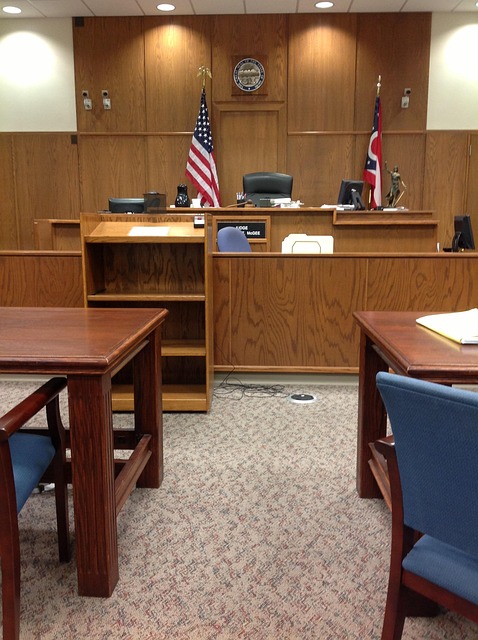Conflict Resolution Strategies for Co-Founders are essential for navigating complex criminal law enforcement frameworks involving agencies, prosecutors, defenders, and courts. Understanding system procedures empowers co-founders to manage expectations, anticipate outcomes, and form alliances. This proactive approach enables the resolution of societal issues through collaborative solutions that balance justice, ethics, and philanthropy. Effective strategies enhance operational efficiency, promote harmony between officers and citizens, and influence criminal defense approaches. Building trust through community policing and open communication further benefits crime control and conflict resolution.
In the realm of criminal law enforcement, understanding the intricate frameworks and diverse roles is key to fostering effective community safety. This article delves into the essential components shaping modern policing, from the complex responsibilities of agencies to innovative conflict resolution techniques. We explore how legal processes unfold, emphasizing the importance of citizen trust and community-oriented strategies. By examining these aspects, we uncover best practices, including unique Conflict Resolution Strategies for Co-Founders, to enhance law enforcement’s effectiveness and public trust in today’s diverse society.
- Understanding Criminal Law Enforcement Frameworks
- Roles & Responsibilities of Law Enforcement Agencies
- Conflict Resolution Techniques in Enforcer-Citizen Interactions
- Legal Processes: From Arrest to Trial
- Building Trust & Community Policing Strategies
Understanding Criminal Law Enforcement Frameworks

The criminal law enforcement framework is a complex web designed to uphold societal order and justice. At its core, it involves a intricate dance between law enforcement agencies, prosecutors, defenders, and the courts. Understanding this framework is crucial for effective conflict resolution strategies for co-founders navigating high-stakes cases within philanthropic and political communities. Each respective business has its own unique challenges and considerations, demanding tailored approaches that respect the rule of law while striving for fairness.
Through a nuanced grasp of procedures, from investigation to trial, co-founders can better manage expectations and anticipate potential outcomes. This proactive understanding enables them to forge alliances with key stakeholders—from legal professionals to community leaders—fostering collaborative solutions that address underlying societal issues without compromising justice. Such strategic partnerships are vital in resolving conflicts that resonate across diverse constituencies, ensuring a harmonious interplay of law, ethics, and philanthropy within the criminal justice system.
Roles & Responsibilities of Law Enforcement Agencies

Law enforcement agencies play a multifaceted role in maintaining public safety and securing justice. Their primary responsibility is to protect citizens from criminal activities, ensuring peace and order in society. This involves various tasks throughout the investigative and enforcement process, starting from preliminary inquiries to complex white-collar crime investigations. These agencies are tasked with gathering evidence, interviewing witnesses, and identifying suspects, ultimately presenting their findings to prosecutors.
Effective conflict resolution strategies for co-founders or partners within these agencies are crucial. Given the sensitive nature of their work, which often involves high-stakes scenarios like jury trials, fostering open communication, and employing collaborative problem-solving methods can significantly enhance operational efficiency. By promoting a culture of cooperation and understanding at all stages of an investigation, law enforcement can better navigate complex cases, ensuring fair outcomes for all parties involved.
Conflict Resolution Techniques in Enforcer-Citizen Interactions

In the realm of criminal law enforcement, effective conflict resolution techniques are paramount for maintaining harmony between enforcers and citizens. When interactions turn tense, skilled officers employ strategies that go beyond physical force or arrest, aiming to de-escalate situations and foster understanding. One of these powerful tools is active listening—a technique where officers demonstrate empathy and fully comprehend the citizen’s concerns, thereby diffusing potential conflicts. Additionally, clear and calm communication ensures that both parties understand each other, preventing misunderstandings that could escalate into more serious issues.
Beyond individual interactions, conflict resolution strategies for co-founders in the philanthropic and political communities can significantly impact general criminal defense approaches. These communities often navigate complex situations requiring delicate handling. By adopting peaceful dispute resolution methods, they can build stronger relationships with citizens and address criminal matters more effectively. Such practices not only enhance community trust but also ensure that justice is served through mutual understanding and respect.
Legal Processes: From Arrest to Trial

The legal process in criminal law enforcement is a carefully structured series of steps designed to ensure fairness and justice. It begins with an arrest, where law enforcement officers have probable cause to believe an individual has committed a crime. Once detained, the accused is read their Miranda rights, guaranteeing them specific legal protections during questioning. This critical phase involves gathering evidence, interviewing witnesses, and building a prosecution case.
The next stage involves the filing of charges by the prosecutor, who must present sufficient evidence to a court or grand jury. From here, the case progresses through pretrial hearings, where both parties present their arguments and strategies. Conflict resolution strategies for co-founders in this phase may include plea bargains or alternative dispute resolution methods, aiming to achieve extraordinary results while considering the best interests of the respective business and broader philanthropic and political communities.
Building Trust & Community Policing Strategies

Building trust between law enforcement agencies and communities is essential for effective criminal law enforcement. Community policing strategies focus on fostering positive relationships, ensuring transparency, and encouraging open communication. This involves regular community interactions, public meetings, and collaborative problem-solving initiatives. By implementing these tactics, law enforcement can gain a deeper understanding of community needs and concerns, leading to more tailored and responsive policing practices.
One successful approach is integrating conflict resolution strategies for co-founders within these community efforts. Similar to resolving disputes among business partners, these techniques promote dialogue, compromise, and mutually agreeable solutions. Instead of relying solely on harsh penalties or jury trials, which can escalate tensions, community policing encourages de-escalation methods and restorative justice practices. This not only helps to resolve criminal issues but also fosters a sense of unity and cooperation within the respective business or neighborhood.
Criminal law enforcement is a multifaceted field that demands a balanced approach. By understanding diverse frameworks, recognizing the crucial roles of agencies, and adopting effective conflict resolution techniques, we can foster healthier interactions between enforcers and citizens. Legal processes must remain fair and transparent while building trust through community policing strategies. For co-founders and stakeholders, implementing these principles is not just about upholding the law; it’s about ensuring a safer, more harmonious society for all.






